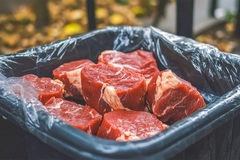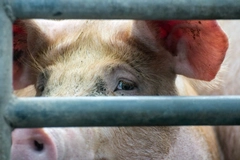
- Industry news
Industry news
- Category news
Category news
- Reports
- Key trends
- Multimedia
- Journal
- Events
- Suppliers
- Home
- Industry news
Industry news
- Category news
Category news
- Reports
- Key trends
- Multimedia
- Events
- Suppliers
EU and UK strike 12-year fishing agreement in post-Brexit reset summit

The UK and EU meet in London today in the first official summit since Brexit, addressing crucial topics such as border checks on agricultural supplies and fishing rights. Preliminary reports indicate that UK Prime Minister Keir Starmer and top EU officials, including European Commission President Ursula von der Leyen, have agreed to a “12-year” deal on fishing access for EU boats in UK waters.
Exact details are still emerging.
In return, the UK has reportedly secured a veterinary agreement to boost trade. An official announcement is yet to be made.
Britain and the 27-nation bloc are also expected to strike a “reset” agreement that could improve the movement of British food exports into the EU and vice versa.
Fishing futures
The future of fishing is high on the agenda, with the post-Brexit deal on fishing rights set to expire in June 2026.
Critics have warned Starmer’s government that any negotiations to give up rights to UK waters and natural resources would mean a “betrayal” of British fishermen.
This morning, Elspeth Macdonald, chief executive of the Scottish Fishermen's Federation (SFF), which represents over 400 fishing boats, told the Good Morning Scotland program that the deal is “an absolutely disastrous outcome for the Scottish fishing fleet,” and described the arrangement as “total capitulation.”
“The UK’s Exclusive Economic Zone and the fisheries it supports are the envy of many. While there are many provisions within the law about how coastal states should cooperate with their neighbours and how resources are managed, the 2020 Brexit deal left the UK in a situation that no other independent coastal state would countenance — giving unfettered access to another’s fishing fleet,” reads a February letter from SFF to Prime Minister Starmer.
“This is why the EU catches around seven times more fish by value in UK waters than the UK catches in EU waters every year. Its fishing fleet is highly dependent on access to UK waters; in contrast, over 85% of UK catches are taken from our own waters. Reciprocal access is heavily loaded in the EU’s favor.”
As reports of a new fishing agreement lasting until 2038 emerge, it remains to be seen what specific rights have been secured for the UK’s farming communities.
Respite for UK F&B trade?
Industry associations suggest that Britain’s trade challenges, including significantly lowered export volumes, are not part of a global trend, “but rather unique to the UK’s post-Brexit circumstances.”
According to an estimate by the UK Food and Drink Federation, British food and drink exports to the EU have fallen by more than a third since Brexit.
Leading fruit and vegetable associations have consistently flagged concerns over “significant and costly delays” to seed deliveries coming from Europe into Great Britain due to lengthy post-Brexit border checks.
“In this time of great uncertainty and volatility, the UK will not respond by turning inwards, but by proudly taking our place on the world stage — strengthening our alliances and closing deals in the interests of British people,” reads a statement by PM Starmer, released a day before the summit.
“Tomorrow, we take another step forward, with yet more benefits for the United Kingdom as the result of a strengthened partnership with the European Union. It will be good for our jobs, good for our bills, and good for our borders.”
“That’s what the British people voted for last year, and it’s what my government will deliver.”
According to the announcement, the summit will help secure “better” business prospects for UK producers.
The government says they face red tape and border checks to supply goods to the country’s “biggest and nearest trading partner,” adding that sometimes, UK businesses can’t export at all.
British supermarkets are expected to gain from the talks, which the government notes have to pass on increased costs to consumers and reduce the availability of products.
Trading fish and meat made “easier”
Addressing the press at the news conference, Starmer emphasizes that the deals support British businesses and jobs.
“We can sell British burgers in the EU,” BBC quotes him as saying.
Responding to questions on the impact of the fishing deal on UK fishers, the prime minister says the agreement’s core idea is to strengthen “bills, jobs, and borders.” He notes that fishing communities can sell more easily to the European market.
The government notes that a new SPS agreement, which concerns rules about animals and food, will ease F&B imports and exports between the two regions.
This means reduced bureaucratic hurdles for businesses, resulting in shorter lorry queues. This agreement will have no time limit.
Food Ingredients First will continue to monitor this story as it unfolds.


















